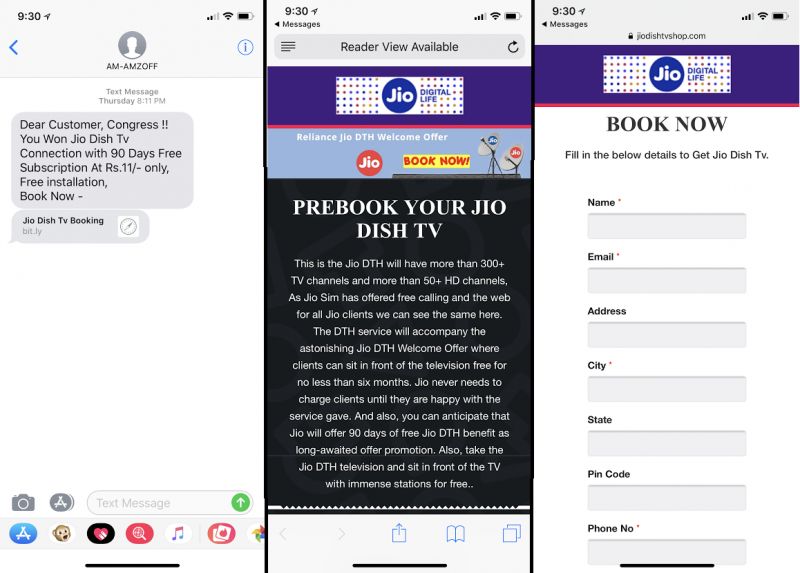Beware: This is how fake Jio TV SMS scam stealing your credit and debit cards
With the entrant of the new start-up in the telecom sector, Reliance Jio has uprooted its competitor with the new data war, and with new freebies offers, Reliance’s Jio has managed to mobilise the Indian internet users in their team, leaving behind their primary network. And as the talks and the rumours also start to build on their DishTV launch, giving fears to DtH service providers.
Taking the advantage of the situation, conman have found a new way to dupe you with your hard earned money and savings in the name of giving you a new “Jio Dish TV”
According to The Asian Age, a text message is sent to the person that claimed to be jiodishtvshop.com. According to The Asian Age, the message they first received is from AM-AMZOFF, which looks like an authentic messaging service. The message says that the number has won a Jio Dish TV, with a three-month free subscription at a nominal price of Rs 11. A link also accompanied the message, which opened into a web page which seemed to give a small introduction to booking the Jio Dish TV.
Once the person scrolls down, a segment saying “Book Now” appears. It prompts the user to enter the private details like the name, email, address and phone number. After agreeing to the terms and conditions, you’re directed to the next tab. What seems to be rather surprising is that even when mere alphabets were entered, the writer was directed to the next tab.
The next window was a so-called ‘Paytm’ site with the name offers24hours.com. For making a payment of Rs 11,a transaction ID is provided for the user. The payment window asks for a payment option from Debit Card, Credit Card and BHIM UPI.
Even though a notification on the same page says ‘Your payment details are secured via 128-bit encryption by Verisign’ but it is definitely not so. The same tab asks for the card details. Once the user enters the payment details, the next tab asks for a three-digit security PIN.
We again entered random numbers just to check the authentication. Once we submitted the OTP (which wasn’t even valid), a succeeding window popped up saying ‘OOPS- Something went wrong’, claims The Asian Age.
So customers, beware of such kind of messages which ask for your confidential information.



